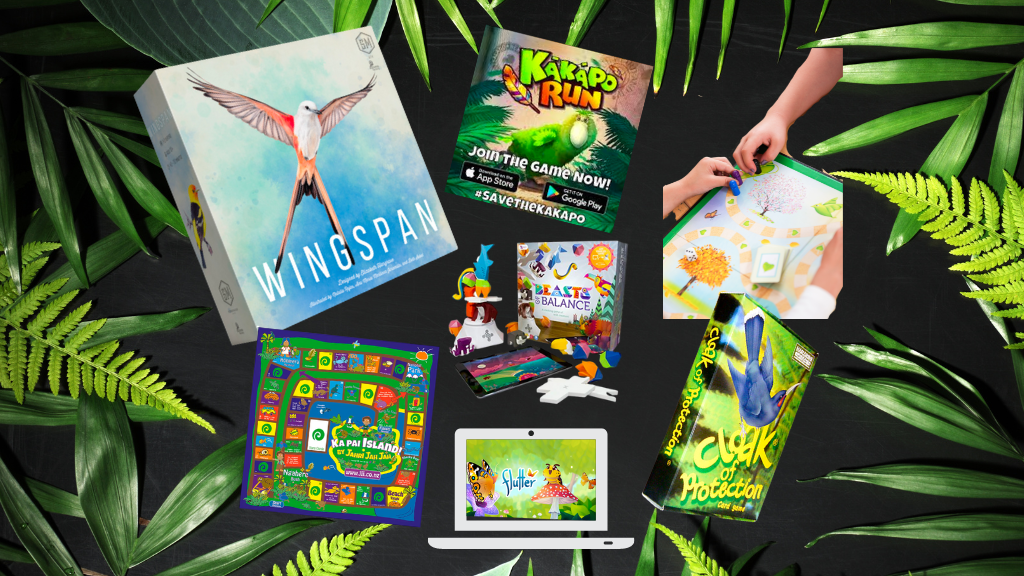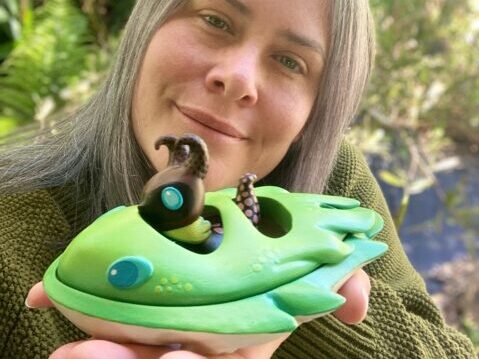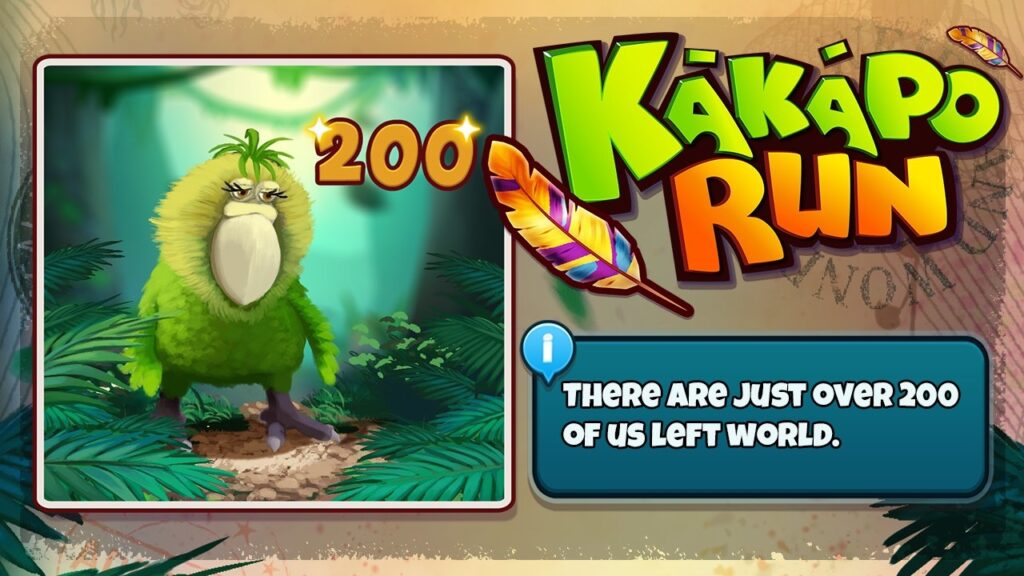Games aren’t just entertainment – it turns out the right ones can also teach us about conservation and looking after nature.

Gaming and play specialist Tanya Marriot, a senior lecturer at Massey University, is working on a PhD that addresses how to engage kids in conservation. Through the idea of “wild play”, she’s looking at how toys can connect New Zealand kids with environmental narratives.

Engaging young people on serious topics like conservation can be challenging, and Tanya sees play as a way to build curiosity and awareness of conservation issues.
“[Playing games] outside enables children to form an intimacy with living creatures and elements of the natural world that do not exist in a sanitised inside world,” she says.
“Through this interaction, they learn to appreciate dirt and mud, wind and dampness, and how these environmental factors affect the creatures that live within the space.”
But it’s not just about outdoor play.
Tanya says inside games, including on the computer, can also help.
“Any game can be harnessed for an environmental cause.
“Online games have a bad rap, but they can be used as a tool to explain the backstory of the environment so when kids go out into nature, they really understand what they’re looking at and can engage at a deeper level.”
Games can be part of the cultural response to ecological crises.
Over the last 10 years, Tanya says games have become more immersive.
Kids can now easily step into the shoes of another character and come to understand their world perspective.
Tanya has been working with the Kiwi Conservation Club (KCC), running a programme which teaches children about the environment. It allows her to research how nature-based games can help kids understand and take an interest in environmental narratives.
“Sometimes the theme will be meta, like climate change, or sometimes it will be focussed on smaller parts of an ecosystem – like freshwater fish, or conservation and trapping.”
Tanya has witnessed how playing games helps children get curious about nature and have a sense of responsibility for the environment.
“When I think about the KCC kids I meet, they’re really articulate and empowered to create change.”
So what makes a game or toy better than others?
“Well-designed toys used within play are the agents for whatever the child wishes to explore, enabling them to form an understanding of the world around them through active exploration, mimicry and imagination,” says Tanya.
“If you have games that help them make choices and learn about consequences – they get to be in the narrative and see how their choices impact the world around them.”
Different kinds of games work better for different people, says Tanya.
While there are many educational computer games, Tanya says she prefers physical games because they give children more options to be creative.
“Physical games are more empowering because [children] can change the rules more easily – it’s more agile, and so it gives kids an opportunity to make choices and decisions.”
“My advice to parents is – let them be curious, get muddy and be interested in the environment, get in the dirt and look at insects,” she says.
Games to try with your friends and whānau
The following games aren’t affiliated with Predator Free NZ Trust. There are many ways to get young people into nature and conservation (particularly by getting outdoors!): check out our schools toolkit for an assortment of learning resources to get kids keen on nature and its protection.

Kākāpō Run
London game designer On the Edge uses the kākāpō to star in their computer game to bring the parrot’s plight to a global audience. The game challenges you to race through the streets of Christchurch and Fiordland trails to the safety of predator free Whenua Hou (Codfish Island).
Botanicula
This computer game is Tanya’s favourite and an award winner. Botanicula is a humour-filled adventure game about five friends, little tree creatures who set out on a journey to save the last seed from their home tree, which is infested by evil parasites.
Runaway
This game developer, based in Dunedin, builds games inspired by the natural world “to promote kaitiakitanga (conservation) and māramatanga (awareness) of our natural environment”. Their characters and stories are cute and nature-inspired.
Cloak of Protection
To save our birds you need to trade, draw, and play to create a feather cloak of 15 cards. Each card sports some predators that threaten your birds. It’s touted as “fun and educational” and holds a mirror to human behaviour and the consequences of our behaviour for conservation.
Wingspan
This game is a competitive card-driven board game. You play bird enthusiasts – researchers, bird watchers, ornithologists and collectors – seeking to discover and attract the best birds to your network of wildlife preserves. You can purchase an Oceania expansion pack that includes birds from Australia and New Zealand.
Beasts of Balance
This is an award-winning stacking game for all ages – build a huge tower and keep your beasts alive but watch out because the world explodes when the tower collapses.

